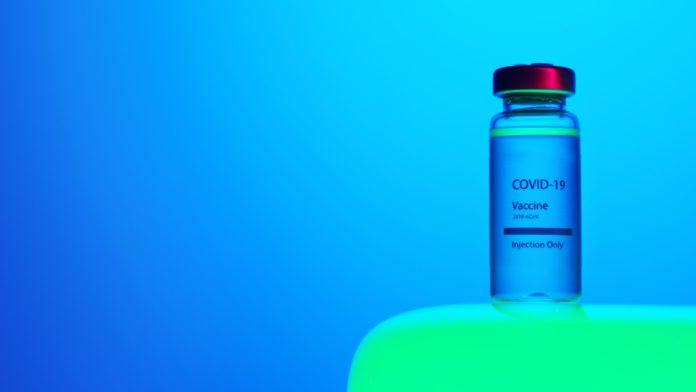Data from the very first COVID-19 survey showed the impact of vaccination on antibody responses and new infections in a large group of adults from the general population aged 16 years and older. The survey was conducted in partnership between the University of Oxford, the Office of National Statistics (ONS), and the Department for Health and Social Care (DHSC).
After analysis of 1,610,562 test results from the nose and throat swabs taken from 373 402 study participants between 1 December 2020 and 3 April 2021, it is observed that after 21 days of taking the first dose of either Oxford-AstraZeneca or Pfizer-BioNTech vaccines, the infections had dropped significantly.
The reduction in overall COVID-19 infections, symptomatic infections, and infections without reported symptoms was 65%, 72%, and 57%, respectively.
After the second dose, the reduction in infections and symptomatic infections was even more significant, 70% and 90%, respectively. These were the same effects observed in previously COVID-19 infected people. Benefits were similar for individuals with age above and under 75 and individuals reporting and non-reporting long-term health conditions.
Vaccines were effective against variants compatible with the Kent strain (B.1.1.7).
Dr. Koen Pouwels, the senior researcher in Oxford University’s Nuffield Department of Population Health, says, “The protection from new infections gained from a single dose supports the decision to extend the time between first and second doses to 12 weeks to maximise initial vaccination coverage and reduce hospitalisations and deaths”
‘However, the fact that we saw smaller reductions in asymptomatic infections than infections with symptoms highlights the potential for vaccinated individuals to get COVID-19 again and for limited ongoing transmission from vaccinated individuals, even if this is at a lower rate. This emphasizes the need for everyone to continue to follow guidelines to reduce transmission risk, for example, through social distancing and masks.’
Another study compared how antibody levels changed after a single dose of either Oxford-AstraZeneca or Pfizer-BioNTech vaccines or two doses of the Pfizer-BioNTech vaccine (generally given 21-42 days apart).
David Eyre, Associate Professor at the Big Data Institute at the University of Oxford, says, “In older individuals, two vaccine doses are as effective as prior natural infection at generating antibodies to the SARS-CoV-2 virus that causes COVID-19 – in younger individuals, a single dose achieves the same level of response. Our findings highlight the importance of individuals getting the second vaccine dose for increased protection.”
Sarah Walker, Professor of Medical Statistics and Epidemiology at the University of Oxford and Chief Investigator and Academic Lead for the COVID-19 Infection Survey, says, “Without large community surveys such as ours, it is impossible to estimate the impact of vaccination on infections without symptoms – these have the potential to keep the epidemic going, particularly if people who have been vaccinated mistakenly think they cannot catch COVID-19. However, these studies show that vaccination and previous infection both protect against getting infected again.”
“We don’t yet know exactly how much of an antibody response, and for how long, is needed to protect people against getting COVID-19 in the long-term – but over the next year, information from the survey should help us to answer these questions. We are very grateful to all our participants for giving up their time to help us.”
The study will continue monitoring the pandemic in the UK on a weekly basis to look for early warning signs of rising infection rates in different regions, sub-regions, and demographic groups. It will further continue to compare the effectiveness of different vaccines and monitor the impact of immunity on protection against COVID-19.
Journal Reference
- Jia Wei, The impact of SARS-CoV-2 vaccines on antibody responses in the general population in the United Kingdom.
DOI: 10.1101/2021.04.22.21255911 - Emma Pritchard, Impact of vaccination on SARS-CoV-2 cases in the community: a population-based study using the UK COVID-19 Infection Survey.
DOI: 10.1101/2021.04.22.21255913
